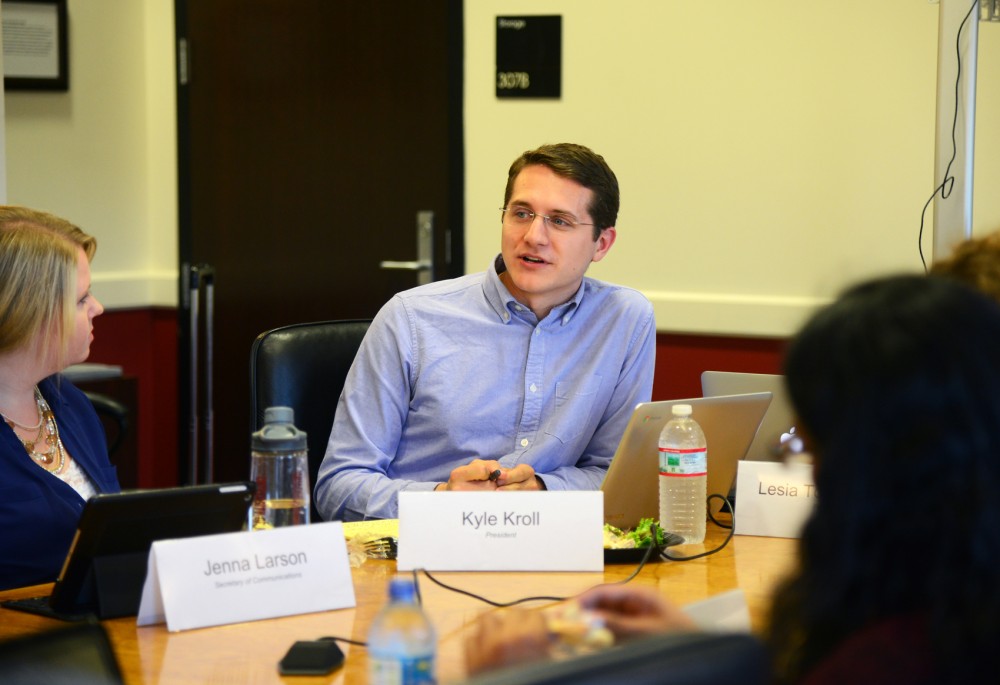The first congress of the newly created Professional Student Government assembled at Coffman Union on Tuesday.
The group, which formed after the old governing body for graduate and professional students split last spring, passed its annual budget and discussed how to encourage more representatives to attend.
Few members opposed passing the $330,195 projected 2015-16 total expenses.
Council representatives also elected public health student Rebecca Horton as speaker of the congress.
Members also discussed how to best represent professional students who aren’t represented by one of the group’s 10 councils.
PSG President Kyle Kroll suggested that unrepresented students have a voice through the Student Senate, as every college has a representative there.
The congress decided to survey the professional students in the unrepresented schools via email and invite them to attend the next month’s meeting.
A tale of two governments
Instead of one Graduate and Professional Student Assembly, the University of Minnesota now has two organizations to serve these students — PSG and the Council of Graduate Students.
Kroll said the transition to PSG has gone well because the new student government is better able to serve professional students.
PSG has a more flexible executive branch than GAPSA did, and decisions should be able to move faster through the new government, said PSG Vice President Katie Saphner.
PSG is made of 10 councils from the largest professional student programs, like the law and medical schools, with two voting representatives from each council.
Vice President of the Law Council Chelsea Lemke said graduate students and professional students are focused on different things.
“We’re more about professional development, and they’re more about research and grants,” she said.
GAPSA had problems with engagement and organization, Kroll said. He said fewer people showed up to GAPSA meetings than attended the PSG meeting, even though GAPSA had 50 representatives, as opposed to PSG’s 20.
Kroll said when GAPSA was set to discuss issues affecting graduate students, professional students wouldn’t have a reason to attend meetings and vice versa.
Kroll said at the meeting that PSG, which sports a new judicial committee, was modeled after the three branches of U.S. government, complete with checks and balances to
hold each branch accountable.
“We kind of did a more collaborative approach to creating a new constitution,” Kroll said.


